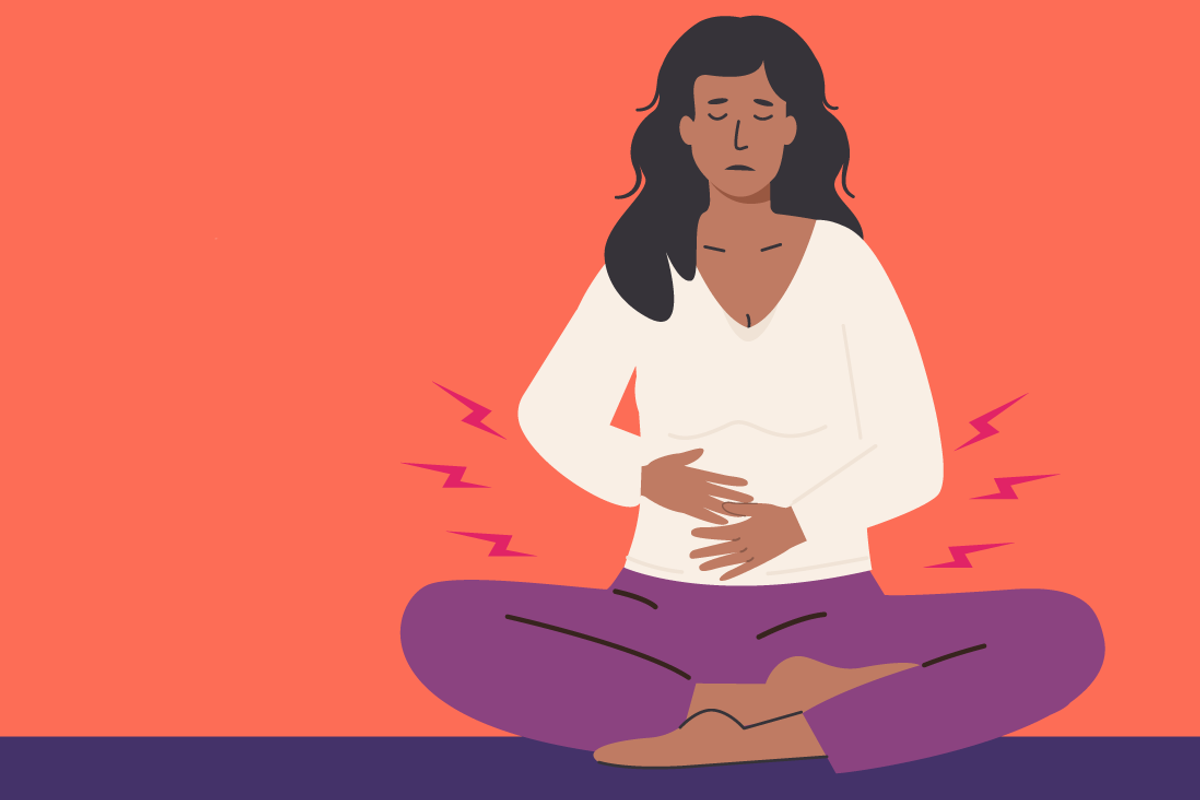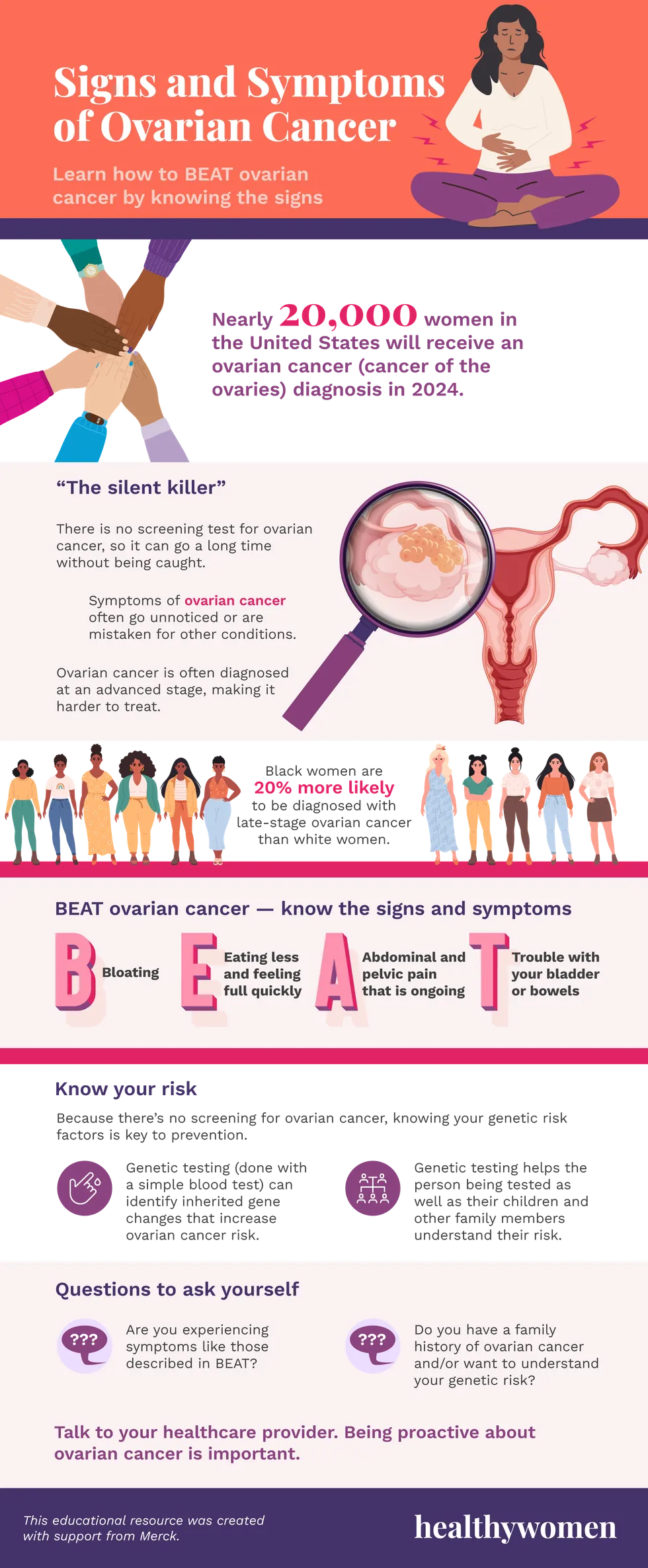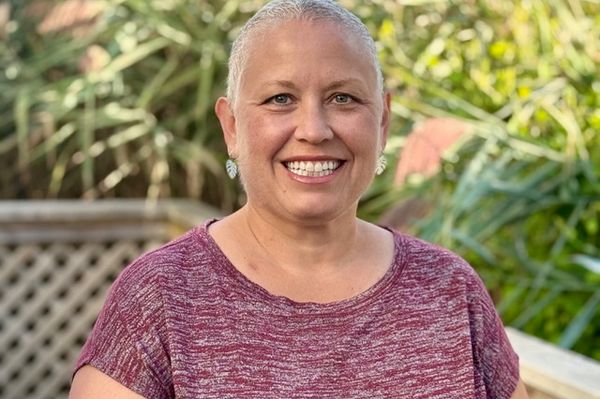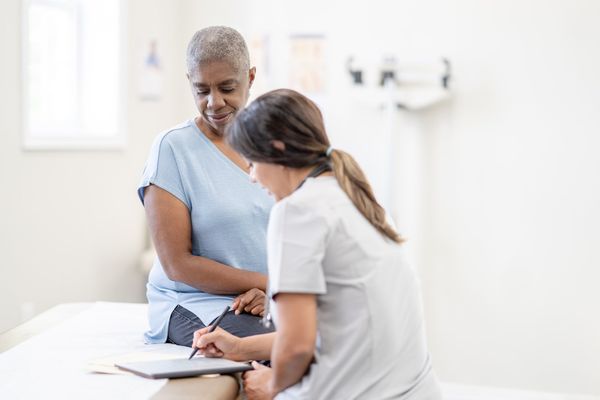Nearly 20,000 women in the United States will receive an ovarian cancer (cancer of the ovaries) diagnosis in 2024.
“The silent killer”
There is no screening test for ovarian cancer, so it can go a long time without being caught.
Symptoms of ovarian cancer often go unnoticed or are mistaken for other conditions.
Ovarian cancer is often diagnosed at an advanced stage, making it harder to treat.
Black women are 20% more likely to be diagnosed with late-stage ovarian cancer than white women.
BEAT ovarian cancer — know the signs and symptoms
Bloating
Eating less and feeling full quickly
Abdominal and pelvic pain that is ongoing
Trouble with your bladder or bowels
Know your risk
Because there’s no screening for ovarian cancer, knowing your genetic risk factors is key to prevention.
- Genetic testing (done with a simple blood test) can identify inherited gene changes that increase ovarian cancer risk.
- Genetic testing helps the person being tested as well as their children and other family members understand their risk.
Questions to ask yourself
- Are you experiencing symptoms like those described in BEAT?
- Do you have a family history of ovarian cancer and/or want to understand your genetic risk?
Talk to your healthcare provider. Being proactive about ovarian cancer is important.
This educational resource was created with support from Merck.
- Ovarian Cancer Is Not a Death Sentence ›
- There Is No Test for Ovarian Cancer ›
- Even a Hysterectomy May Not Protect Against Ovarian Cancer ›
- What You Need to Know About Ovarian Cancer ›
- Ovarian Cancer 101: Know Your Treatment Options ›
- Valerie Palmieri Is Talking About Ovarian Cancer - HealthyWomen ›
- What to Do If You’ve Just Been Diagnosed with Ovarian Cancer - HealthyWomen ›
- Qué hacer si te acaban de diagnosticar cáncer ovárico - HealthyWomen ›
- Understanding Your Risk for Ovarian Cancer - HealthyWomen ›
- Comprender tu riesgo de cáncer ovárico - HealthyWomen ›
- Ovarian Cancer: Know the Symptoms and Risk Factors - HealthyWomen ›







